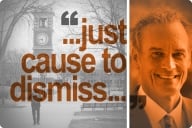You have /5 articles left.
Sign up for a free account or log in.
Adapt: Why Success Always Starts with Failure by Tim Harford
Adapt will be an influential book. I read lots of terrific books, and Harford's latest is certainly terrific, but very few books make a long-term difference in how we think. Thaler and Sunstein's Nudge, Ariely's Predictably Irrational, Taleb's The Black Swan, and Wu's Master Switch are all influential books. They all creep into conversations, inform policy choices, underlie institutional strategies, and shape careers.
One of my favorite quotes of all time comes from John Maynard Keynes:
“The ideas of economists and political philosophers, both when they are right and when they are wrong, are more powerful than is commonly understood. Indeed the world is ruled by little else. Practical men, who believe themselves to be quite exempt from any intellectual influence, are usually the slaves of some defunct economist.”
(Note: when Keynes was around, the ed tech profession did not yet exist, but if it did I think we would have been included amongst "economists and political philosophers").
Ideas rule the world. And books are the way that ideas take shape and spread. Therefore, books rule the world.
Adapt may get you thinking about your ability to adapt. Accept that you will fail, that your institution, your company, your department and your division will fail. What matters is how we learn from failure. Harford builds his theory of adaptation and failure by telling stories.
How did the U.S. Army turn the Iraq war around? (Short story … by Colonels on the ground risking careers by defying their civilian and military bosses, and engaging in counter-insurgent tactics). How have successful companies, from Google to Whole Foods, to W.L. Gore drive innovation and profits? (Answer: by creating non-hierarchical cultures that push authority and accountability to the edges).
All this may seem like familiar ground, and some of it has been well covered in Schulz's marvelous Being Wrong and Watt's Everything is Obvious (among others), but Harford brings these threads together into a clear set of ideas that are actionable in our professional lives and organizations.
What are you reading?








